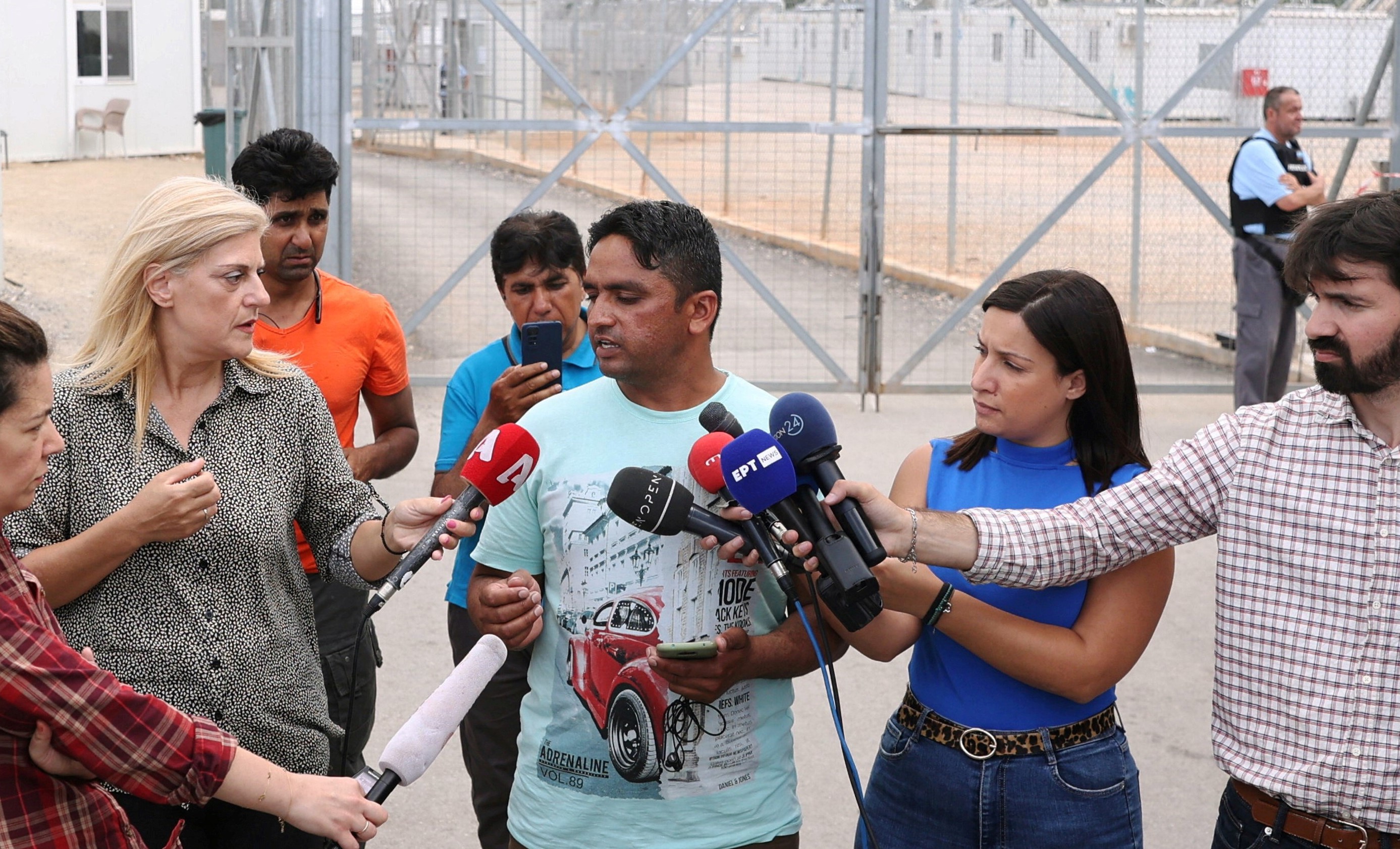مع كل مأساة جديدة يروح ضحيتها العشرات وربّما المئات من الأشخاص خلال الرحلات المليئة بالخطر لقطع الحدود برّاً أو بحراً يُعاد النقاش حول مسألة اللجوء والهجرة، ويحتار الإعلام في تسمية ضحايا هذه الحوادث التي لا حصر لها، أهم لاجئون أم مهاجرون؟ أهي هجرة غير شرعية أم غير نظامية؟ لكن برأيي يجب إعادة ضبط النقاش مجدداً ليصل إلى الجذور، ويضع مسألة حركة الأفراد في العالم أجمع في سياق أكثر شمولاً لفهم التناقضات في هذا الملف. وهي التي يجب التركيز عليها في التغطيات الإعلامية، للمساهمة في توفير معلومات أفضل تُساعد في فهم أبعاد الملف بعيداً عن التعامل مع كل أزمة لجوء لمجموعة سكانية معينة على أساس أنها حدث فردي غير مرتبط بالأزمات الأخرى.
مسألة المصطلحات المتعلقة بالحركة البشرية حول العالم مهمّة جداً، ويمكن من خلالها ملاحظة الكثير مما لا يتم النقاش حوله؛ فحين يتحرك الأفراد من دول شمال العالم الغنيّة وينتقلون للعيش في دول أخرى يُطلق عليهم مصطلح مغتربون expats، حتى لو أمضوا ما تبقّى من حياتهم في البلد الذي انتقلوا إليه، حيث إن التنقّل فيه يكون مريحاً وآمناً ومليئا بالرفاهية والمرح، وحين يصلون يحظون – أحيانا- بامتيازات أعلى من السكّان الأصليين خاصة في فرص العمل والرواتب، ويكفي أن يُتقن هذا المُغترب لغة السكّان الأصليين حتى يُصبح مشهوراً على مواقع التواصل الاجتماعي يُحتفى بقدرته على الحديث بلغة جديدة.
بالمقابل، فحركة الأفراد من دول جنوب العالم الفقيرة إلى دول شمال العالم تُصبح هجرة immigration، محفوفة بالمخاطر وتُزهق الأرواح، وتُدخل من نجا من الرحلة في دوّامة من الإجراءات الإدارية التي يتحوّل فيها الأفراد إلى إضبارة أو معاملة، يختفي فيها الحس البشري ويصبح كل ما يهم خلالها هو الأوراق الرسمية. ثم بعدها لا يحظى من أنهى المعاملات الرسمية إلا بقدر معيّن من الظروف المعيشية أو الفرص أو المكانة الاجتماعية لا يمكنه تجاوزه إلا في حالات قليلة ونادرة. تتحوّل هذه الحالات إلى عناوين رئيسية في نشرات الأخبار وفيديوهات مُلهمة على مواقع التواصل الاجتماعي تحت عنوان "قصص نجاح"، هي بالنسبة لسكان هذا البلد لا تتجاوز كونها روتينا يوميا. إنها قصص تخلق جوا من الخيال الوهمي حول اللجوء والهجرة ليتصوّر الناس أنها طريق معبّدة بالورود للنجاح أو الإنجاز.
رغم أن قضايا اللجوء والهجرة مرتبطة بشكل كبير بالمنطقة العربية سواء باعتبارها ممراً أساسياً للمهاجرين، أو بلدانا يهاجر مواطنوها لأسباب مختلفة، إلا أن طبيعة النقاش الإعلامي حول هذه القضية يتطابق مع النقاش الغربي.
ينخرط الإعلام بكثافة في الترويج لهذه التناقضات ولا يحاسبها ولا يتوقف عندها ويتساءل ما الذي يجعل التغطيات بين الفئتين مختلفة بهذا القدر من الغرابة والتباعد؟ وكيف وصلنا إلى هنا؟ وهل يجب على الإعلام الاستمرار بإعادة إنتاج القصص ضمن هذه التقسيمات التي وضعها النظام العالمي الحالي؟ ورغم أن قضايا اللجوء والهجرة مرتبطة بشكل كبير بالمنطقة العربية سواء باعتبارها ممراً أساسياً للمهاجرين، أو بلدانا يهاجر مواطنوها لأسباب متعلقة بالحروب والاضطهاد أو لأسباب اقتصادية، إلا أن طبيعة النقاش الإعلامي حول هذه القضية يتطابق مع النقاش الغربي، إما ببث خطاب الكراهية أو التخويف من المهاجرين على أسس عرقية أو دينية أو إثنية، إلى جانب التحذير مما يُطلق عليه تبعات و"أعباء" اللجوء. خطورة هذا النقاش لا تتعلق فقط بتعريض اللاجئين والمهاجرين للخطر، إنما أيضاً بالفشل الدائم بالوصول إلى حلول لأن الحوار لا يصل لجذر المشكلة بغية المعالجة الحقيقية لها.
قبل أيام استطاعت أوروبا أن تتوصل لاتفاق جديد متعلق باللجوء والهجرة إلى بلدان الاتحاد الأوروبي. هذه البلدان التي ترتبط بشكل أساسي بخلق أسباب اللجوء باعتبار أن أغلب دول جنوب العالم تشكّلت ضمن سياقات الاستعمار الأوروبي، لا تنخرط في نقاش جادّ حول قضايا اللجوء مع دول جنوب العالم - بما فيها العربية منها - لغايات تحقيق التنمية وتعزيز الأمن والاستقرار بشكل فعّال، إنما تعمل على فرض حلول أمنية تتحول فيها الدول العربية بأجهزتها العسكرية إلى "شرطة هجرة" تقوم بالدور القذر الذي لا ترغب أوروبا بالقيام به لتحافظ على صورتها الإنسانية.
على هذا النحو، تلاحق الأجهزة الأمنية المهاجرين على الحدود وحتى وسط البحر وتعرّضهم لأخطار مختلفة مقابل مكافآت مالية من دول أوروبا، واتفاقات تعزز من وجود الدكتاتوريات المُطيعة على الضفة الجنوبية من البحر الأبيض المتوسط، وهي الدكتاتوريات التي لا تعنيها الإنسانية لمواطنيها قبل أن تفكّر بإنسانية المهاجرين.
الأرواح المهدورة في البحر ما هي إلا "فائض بشري" حسب وصف المفكر البولندي زيغمونت باومان، يتخلص منها العالم الحداثي بطرق مختلفة لضمان الوفرة لمواطني شمال العالم، ولا تستحق من الإعلام العربي أن تؤخذ على محمل الجد بسبب محدودية وقت النشرة.
يغيب الإعلام العربي عن النقاش مجدداً، فلا رقابة جادّة على هذه الأدوار المُرعبة التي تتسبب بانتهاكات كبيرة لحقوق الإنسان والتي ترتكبها جماعات وأجهزة من العمق العربي، ولا انتقاد لاستثناء الدول العربية من الحوارات المتعلقة بقضايا اللجوء والهجرة عالمياً، والتعامل مع القضية كأنها شأن يهم أوروبا لوحدها، ولا بحث في ثنايا الاتفاقات غير المُعلنة بين الزعماء العرب وأوروبا.
إنه الإعلام نفسه الذي لم يصمت طوال أسابيع عن الغرق في أزمة "الشوكولامو" بدعوى محاربة العنصرية والدفاع عن حقوق اللاجئين، فقط لأن قضية تصريحات الصحفية اللبنانية أصبحت مثار جدل على مواقع التواصل الاجتماعي وحاصدة للقراءات والمشاهدات ضمن نقاش لا يخدم أحد، ولا يضع مسألة اللجوء والهجرة إلا في سياق التندّر الثقافي والمناطقي، فتصبح الفكاهة ذات الأولوية في قضايا تؤثر على المجتمعات العربية بالمجمل.
وقد لا يكون فقدان 500 شخص في عرض البحر دفعة واحدة أمراً مُقلقاً يستدعي إجراء تغطيات مفتوحة على الشاشات الفضائية، لكن مقتل أو حتّى إصابة شخص واحد في حدث أمني بدوافع أيديولوجية في عاصمة أوروبية يستدعي ذلك. هذا أمرٌ طبيعي، أو بالأحرى جعله العالم الحداثي طبيعياً، ببساطة حياة هذا الشخص لها قيمة أكبر من حياة المهاجرين، فهو مُتحضّر، يعمل ويدفع ضرائبه ويشارك بالانتخابات الديمقراطية ومنخرط بالسوق بجدارة، على عكس المهاجرين الذين سيكونون عبئاً على النظام الذي يهتمّ بتعظيم الأرباح، والقادر على تحقيق الرفاه، لكن لفئة معيّنة من الناس، وليس للجميع. أما الأرواح المهدورة في البحر ما هي إلا "فائض بشري" حسب وصف المفكر البولندي زيغمونت باومان، يتخلص منها العالم الحداثي بطرق مختلفة لضمان الوفرة لمواطني شمال العالم، ولا تستحق من الإعلام العربي أن تؤخذ على محمل الجد بسبب محدودية وقت النشرة.











































